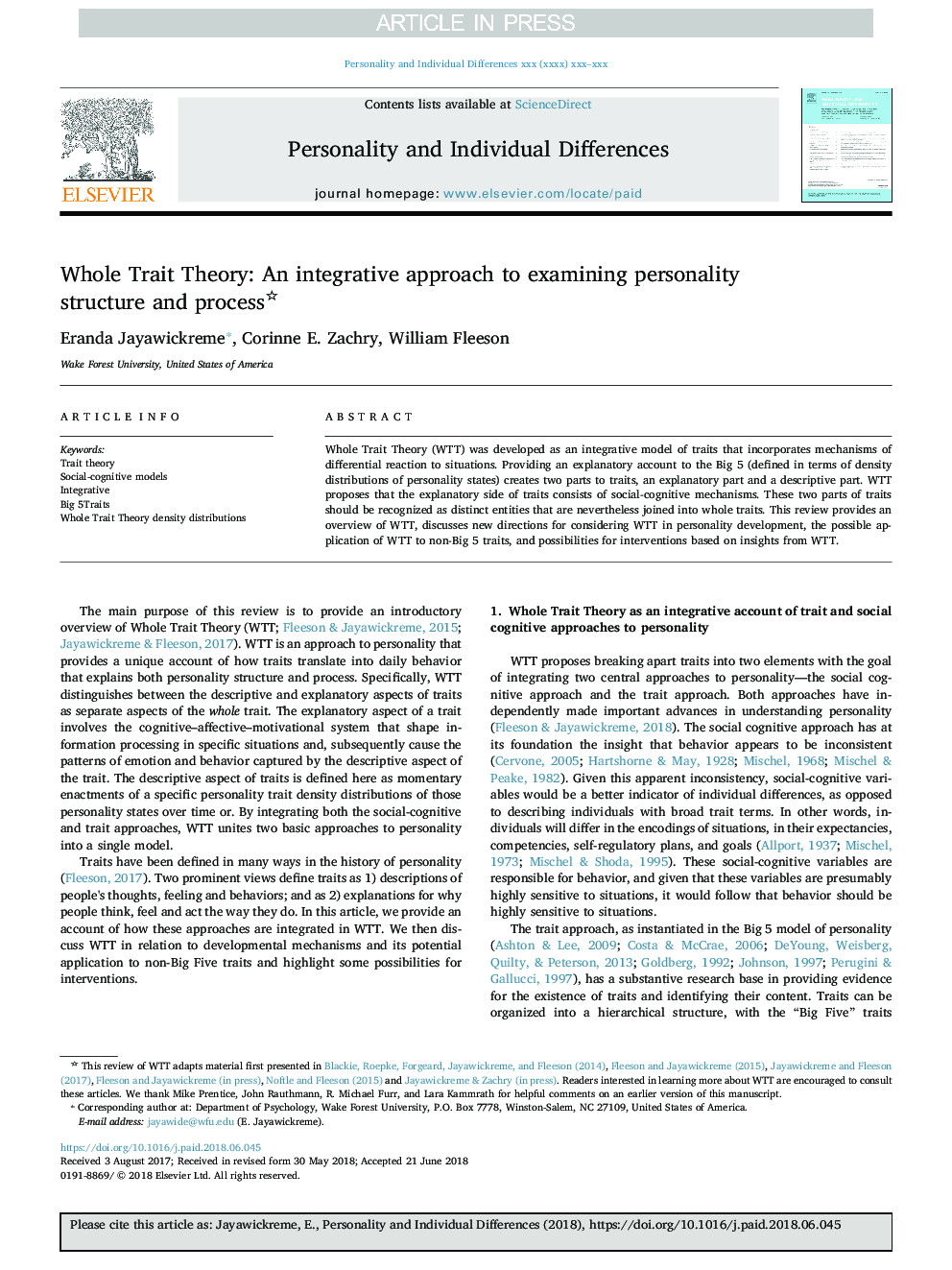| Article ID | Journal | Published Year | Pages | File Type |
|---|---|---|---|---|
| 11016175 | Personality and Individual Differences | 2019 | 10 Pages |
Abstract
Whole Trait Theory (WTT) was developed as an integrative model of traits that incorporates mechanisms of differential reaction to situations. Providing an explanatory account to the Big 5 (defined in terms of density distributions of personality states) creates two parts to traits, an explanatory part and a descriptive part. WTT proposes that the explanatory side of traits consists of social-cognitive mechanisms. These two parts of traits should be recognized as distinct entities that are nevertheless joined into whole traits. This review provides an overview of WTT, discusses new directions for considering WTT in personality development, the possible application of WTT to non-Big 5 traits, and possibilities for interventions based on insights from WTT.
Keywords
Related Topics
Life Sciences
Neuroscience
Behavioral Neuroscience
Authors
Eranda Jayawickreme, Corinne E. Zachry, William Fleeson,
